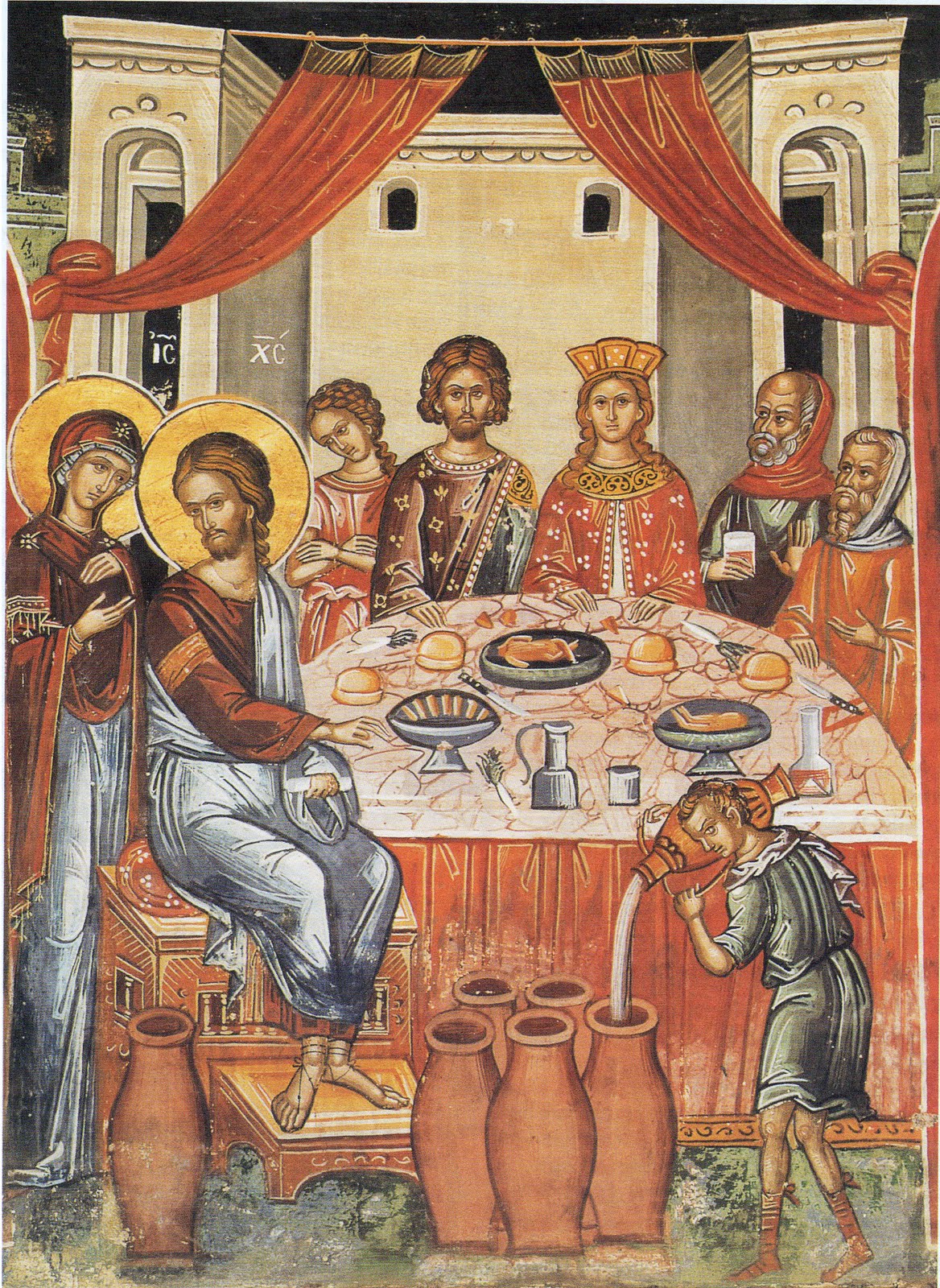 |
| The wedding in Cana |
The understanding of the human person as a creature of God and made in the image and likeness of God is a fundamental aspect of Catholic anthropology (the understanding of what it is to be a human being). Being made in the image of God affords the human person a dignity which is fulfilled in his calling to divine beatitude. He is not just an animal that responds to his natural inclinations but possesses a dignity pointing towards something that transcends those inclinations. As God is Trinity which ineffably expresses both Being and Love*, so the human person is called to find beatitude through both life and love, both body and soul. He is a creature of great capacity and potential. In his God-given freedom of will, the human person either does, or does not, conform to this great good that God has promised and is corroborated by his moral conscience. Catholic teaching on marriage and sexual ethics proclaims this great good. To separate the unitive from the procreative, which all forms of sexual immorality do in one way or another, is a sin against the inner life of the human person made in the image of God who is Trinity (Esse et Amor). To act as if these were separate is to go against God’s calling and is opposed to our dignity as made in the image of God.
Without an understanding of Catholic anthropology the foundational teaching of the Catholic Church on marriage and sexual ethics cannot be understood. While of course someone may choose to accept the authority of the Church, they will not understand why the Church proclaims what she does. When the Church’s teaching is challenged, how can someone make a reasonable defence of their chosen behaviour? The proclamation that the two inseparable goods of marriage and sex are the unitive and the procreative, informs all the Church’s teaching on marriage and sexual ethics. Every form of sexual immorality is opposed to this integrity of the unitive and procreative. Understanding Catholic anthropology, that human beings are made in God’s image and called to Beatitude, is fundamental because the inseparable goods of marriage and sex (unitive and procreative) are reflections of God Himself who is revealed as Being and Love (Esse et Amor).
IH